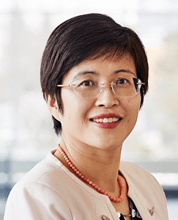Summary
Coherence is essential for quantum computation; yet it introduces a unique sensitivity to any imperfections in hardware design, control systems, and the operating environment. Overcoming these sensitivities requires a hierarchy of strategies, ranging from optimization of the hardware architecture to software solutions including quantum error correction. Randomized Benchmarking Protocols are an important family of tools (developed mostly here in Waterloo) that have become widely adopted to characterize and optimize the performance of one- and two-qubit quantum gates. Moving beyond the current state-of-the-art, we are developing and applying protocols that can characterize, optimize, validate, and certify the overall performance of a many-qubit architecture. We are also working to develop the diagnostics that will guide the design of multi-qubit quantum processors, for example, by clarifying how the quality of quantum control scales with the number of qubits. Ultimately, we expect that this work will sharpen our understanding of the required resources for quantum computation to outperform classical systems.

Related Content

Micro-Supercapacitors Based on Termination Optimized MXene Quantum Dots with Ultra-High Rate Capability and Fast Frequency Response
Micro-supercapacitors (MCs) are miniaturized energy storage devices that can enhance the performance of wearable health devices, medical implants, wireless sensors, and micro-electromechanical systems due to their fast frequency response, long life cycle, and vast temperature operation. However, to make these MC systems into commercially feasible products, necessary improvements to current MC performance are necessary, primarily […]
June 12, 2023

Cryo-CMOS to Control and Operate 2D Fault-Tolerant Qubit Network
Summary Large-scale, fault-tolerant quantum computation requires precise and stable control of individual qubits. This project will use complementary metal-oxide-semiconductor (CMOS) technology to provide a cost-effective scalable platform for reliable and high-density control infrastructure for silicon spin qubits. We will use sub-micron CMOS technology to address device and circuit-level challenges and explore the integration of […]
June 14, 2018

Hybrid Quantum Materials towards Topological Quantum Computing
Summary Proximity engineered hybrid materials have shown promise for topological quantum information processing. This form of quantum computing provides a stable, error-tolerant approach for building scalable quantum information processors. Topological quantum computing relies on braiding non-Abelian particles, such as Majorana fermions, which do not exist in nature. One can however use materials engineering to […]
December 8, 2018

Portable Quantum Dot Measurement System
Summary Detecting heavy metals in water is essential to ensure clean drinking water and appropriate regulatory decisions following an accident (e.g., a spill) or an emergency. Traditionally, high-sensitivity detection of heavy metals requires bulky and costly (to purchase and operate) lab-based instruments. We propose developing a palm-sized, element-specific, highly-sensitive, battery-operated, smartphone-controlled system for on-site measurement […]
July 21, 2022

